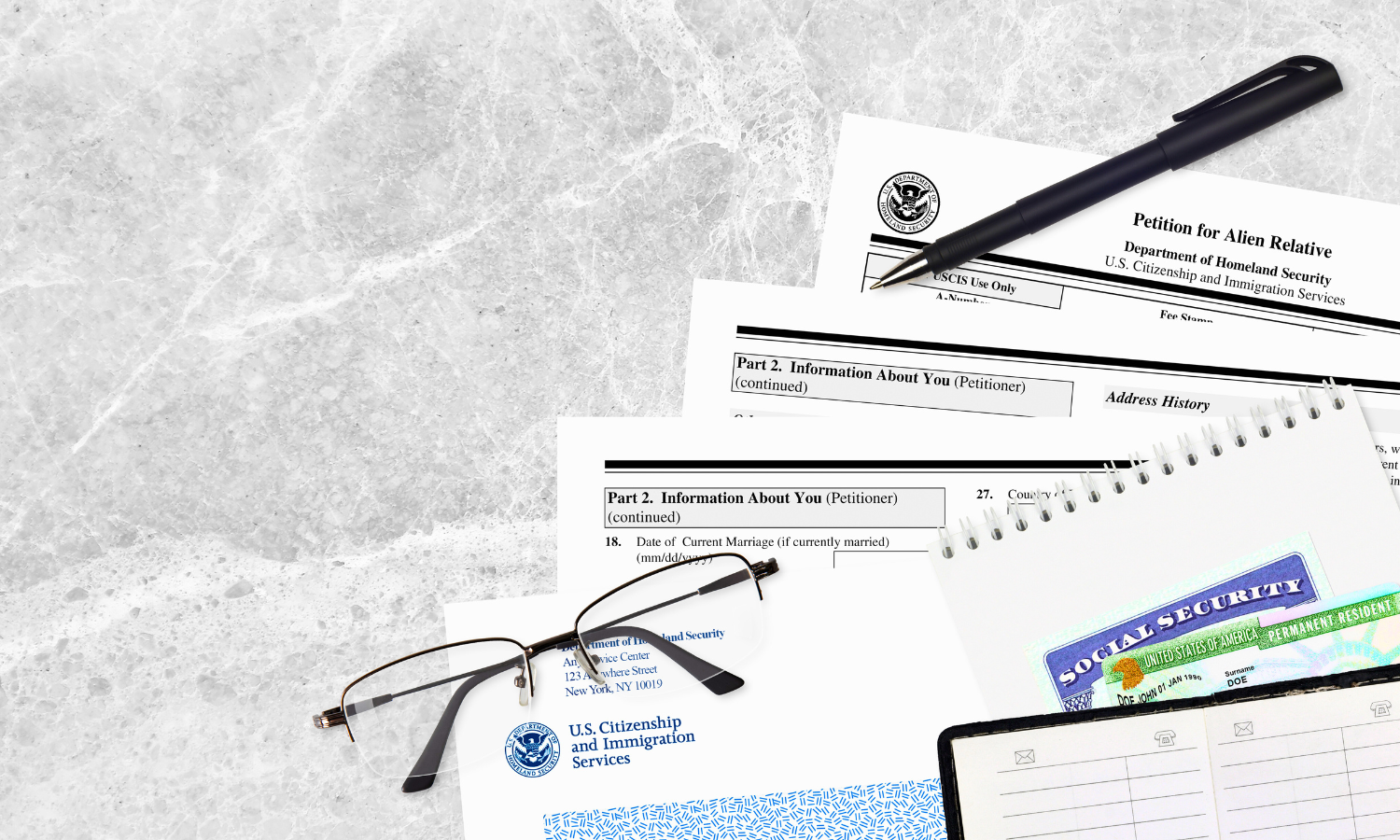How to File an I-130 at a U.S. Consulate

At Passage Immigration Law, we’re always tracking the latest developments in immigration procedures—especially when there are ways to help families stay together during urgent or difficult times. One such option is the consular filing of Form I-130 (Petition for Alien Relative), which allows U.S. citizens to file directly with a U.S. embassy or consulate abroad under certain emergency or exceptional circumstances.
Here’s a breakdown of how to file an I-130 at a U.S. Consulate under exceptional circumstances.
What Is Consular Filing of Form I-130?

While most I-130 petitions must be filed online or at a USCIS lockbox in the United States, USCIS has authorized the Department of State (DOS) to accept local I-130 filings in specific, time-sensitive situations. These filings can allow for faster adjudication and visa processing for immediate relatives of U.S. citizens.
However, these filings are only accepted under exceptional circumstances or for petitioners who qualify under a blanket authorization—and even then, acceptance is at the discretion of the consular post.
When Can You File an I-130 Abroad?
Exceptional Circumstances that may justify a consular I-130 filing include:
-
Military Deployments: If a U.S. service member stationed abroad is facing a sudden reassignment with little notice.
-
Medical Emergencies: When a petitioner or beneficiary needs urgent medical care requiring immediate travel.
-
Personal Safety Threats: Civil unrest, natural disasters, or violence forcing the family out of their current country.
-
Age-Out Risks: When the beneficiary is close to aging out of eligibility for immigration benefits.
-
Recent Naturalization: If a petitioner has recently become a U.S. citizen and their family is already abroad for an immigrant visa appointment.
-
Adoptions: If a U.S. citizen has adopted a child abroad and needs to depart quickly (only when legal custody and residence requirements are met).
-
Short-Notice Job Relocation: When a U.S. citizen abroad receives a job offer or transfer to the U.S. with a rapid start date.
It’s important to note that consular posts vary in how they interpret and apply these exceptions. For instance, posts in Prague or Auckland may allow filings for the beneficiary’s relocation, while London may only permit it for the petitioner’s relocation.
🛠 Practice Tip: Include a detailed declaration from the U.S. citizen petitioner describing the urgency, such as risk of job loss, family health issues, or caregiving responsibilities in the U.S.
Blanket Authorizations: When No Exception Is Needed
In some cases, USCIS grants blanket authorization for certain groups, meaning consulates can accept I-130 filings without additional justification. Two key examples:
-
U.S. Military Stationed Abroad: Active-duty service members on military bases overseas can file at a consular post without proving exceptional circumstances.
-
Crisis Zones: During severe civil unrest or natural disasters (e.g., in Afghanistan, Ukraine, or Ethiopia), blanket authorizations may be issued to help affected U.S. citizens file for family members.
Important Limitations
Even if you qualify, not every consulate will accept local filings, and DOS has discretion to deny them. Some situations are explicitly excluded:
-
The petitioner already filed a Form I-130 with USCIS for the same beneficiary.
-
The petitioner resides in the U.S. but travels abroad just to file in person.
❗ Practice Tip: If a Form I-130 was already filed with USCIS but circumstances have changed, it may be possible to withdraw that petition and request local consular filing. However, USCIS withdrawal processing can take months, and not all consulates will accept these cases. Congressional assistance may be helpful to speed up the withdrawal process.
How to File at a Consulate
Each consular post has its own procedures. Here are two examples:
🇦🇺 Australia
-
Email the consulate with a signed Form I-130, explanation of the emergency, and supporting evidence.
-
If approved, the petitioner must attend an in-person appointment to formally submit the petition.
🇬🇧 United Kingdom
-
Submit an online contact form to the U.S. Embassy in London.
-
Wait for a document request email and further instructions.
-
If the request is approved, the U.S. citizen must appear in person to file the petition.
Because procedures vary, it’s essential to check the consulate’s website or consult with an immigration attorney before proceeding.
Physical Presence and Residency Rules
To file at a consulate:
-
The petitioner and beneficiary must both be physically present in the consular district.
-
The petitioner must appear in person to submit the petition.
-
While residency in the consular district is not required, it is often a factor in approval.
What Happens After Approval?

If the I-130 is clearly approvable, the consular officer can approve it directly. If not, it’s forwarded to a USCIS service center for review. Approved cases move directly to visa processing at the consulate—the National Visa Center (NVC) is not involved.
Final Thoughts
Now you know how to file an file an I-130 at a U.S. Consulate under exceptional circumstances. Consular I-130 filings are a powerful option in urgent situations—but they require careful preparation, strong documentation, and an understanding of local consular policies. At Passage Immigration Law, we help clients evaluate whether this route is right for them and guide them through every step of the process.
📍Need help navigating consular filing of Form I-130? Contact our legal team to assess your eligibility and develop the strongest possible petition by scheduling a consultation today.
Disclaimer: This article offers general legal information, not legal advice. Do not rely upon this information without seeking legal counsel. If you need legal advice, you may contact us directly to speak with an attorney. We disclaim all liability with respect to actions taken based on any information presented. Every case is different, and outcomes will vary depending on the unique facts and legal issues of your case.
